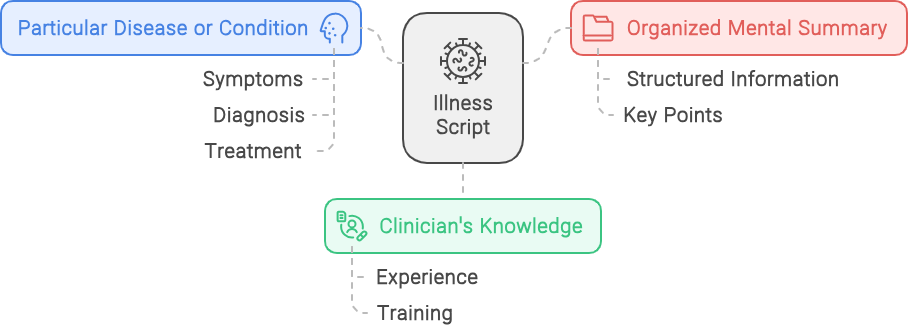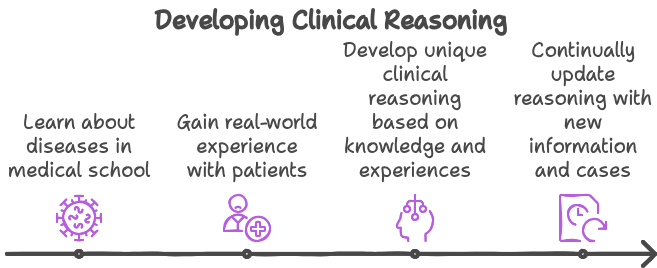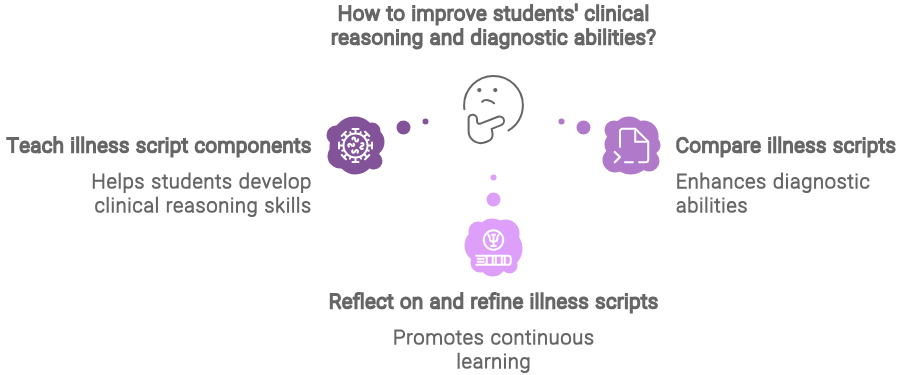An illness script is an organized mental summary of a clinician's knowledge about a particular disease or medical condition.
In essence, illness scripts are a cognitive tool that allows clinicians to efficiently organize, retrieve, and apply their medical knowledge in clinical practice. They play a crucial role in the development of clinical expertise and diagnostic reasoning skills.
Components of an Illness Script
Illness scripts typically include information on:
-
Pathophysiology: The underlying disease mechanisms and processes
-
Epidemiology: Who commonly gets the disease, risk factors, prevalence
-
Time course: Onset, progression, and duration of the condition
-
Signs and symptoms: Key clinical manifestations
-
Diagnostics: Relevant tests and typical findings
-
Treatment: Standard management approaches
Purpose and Use
Illness scripts serve several important functions:
-
Help clinicians efficiently gather relevant data during patient encounters
-
Allow rapid comparison between a patient's presentation and typical disease patterns
-
Guide diagnostic reasoning and hypothesis generation
-
Evolve and become more refined with clinical experience
Development of Illness Scripts and Clinical Reasoning
Development of Illness Scripts
-
Begin forming in medical school as students learn about diseases
-
Become more detailed and nuanced as clinicians gain real-world experience with patients
-
Are unique to each individual clinician based on their knowledge and experiences
-
Remain dynamic, continually updated with new information and cases
Role of illness scripts in Clinical Reasoning
Educational Applications
-
Explicitly teaching illness script components can help students develop clinical reasoning skills
-
Comparing and contrasting illness scripts for similar conditions can enhance diagnostic abilities
-
Reflecting on and refining illness scripts after patient encounters promotes continuous learning






